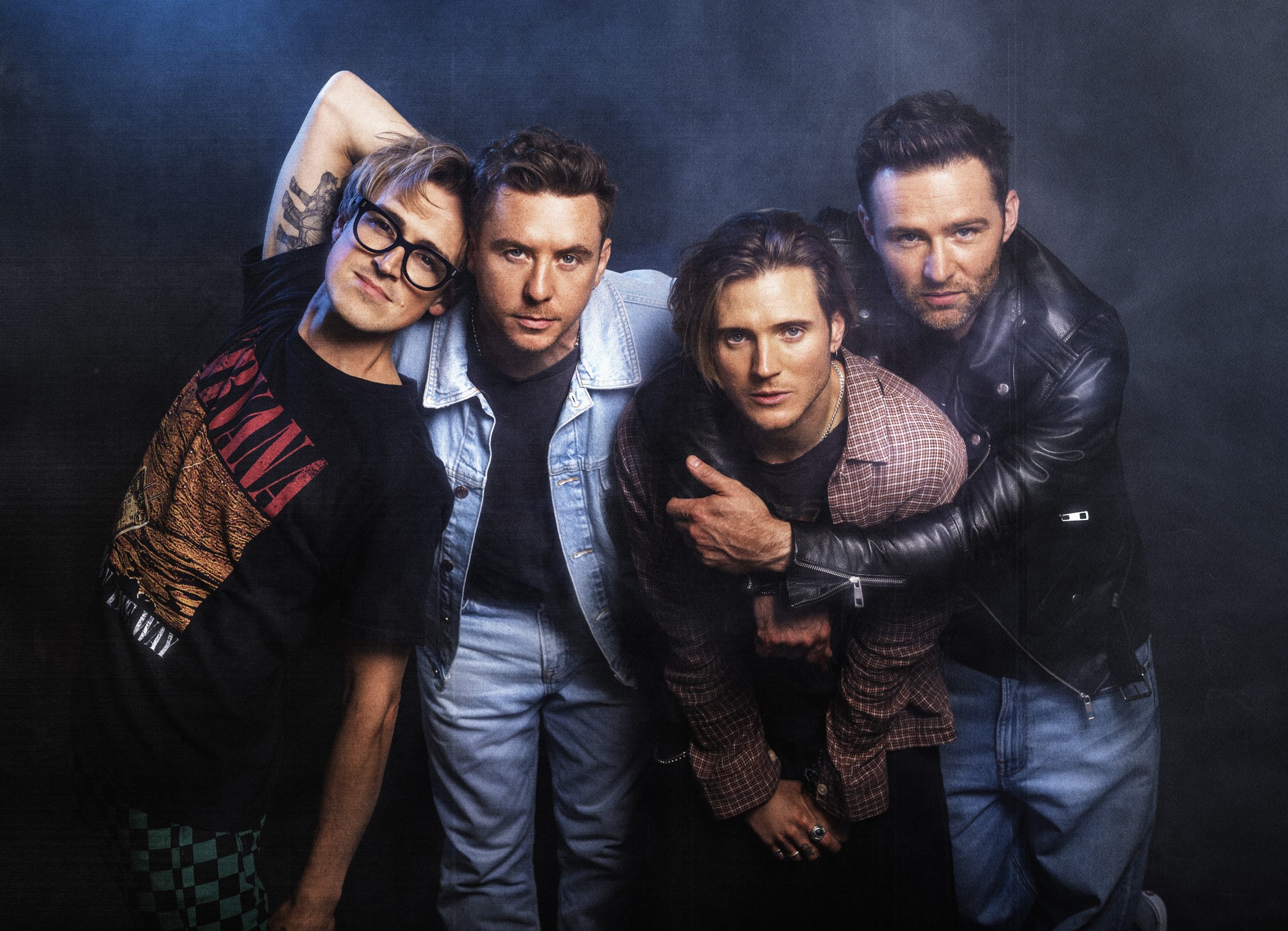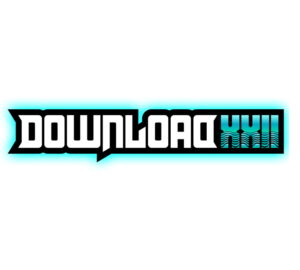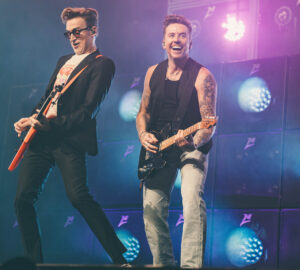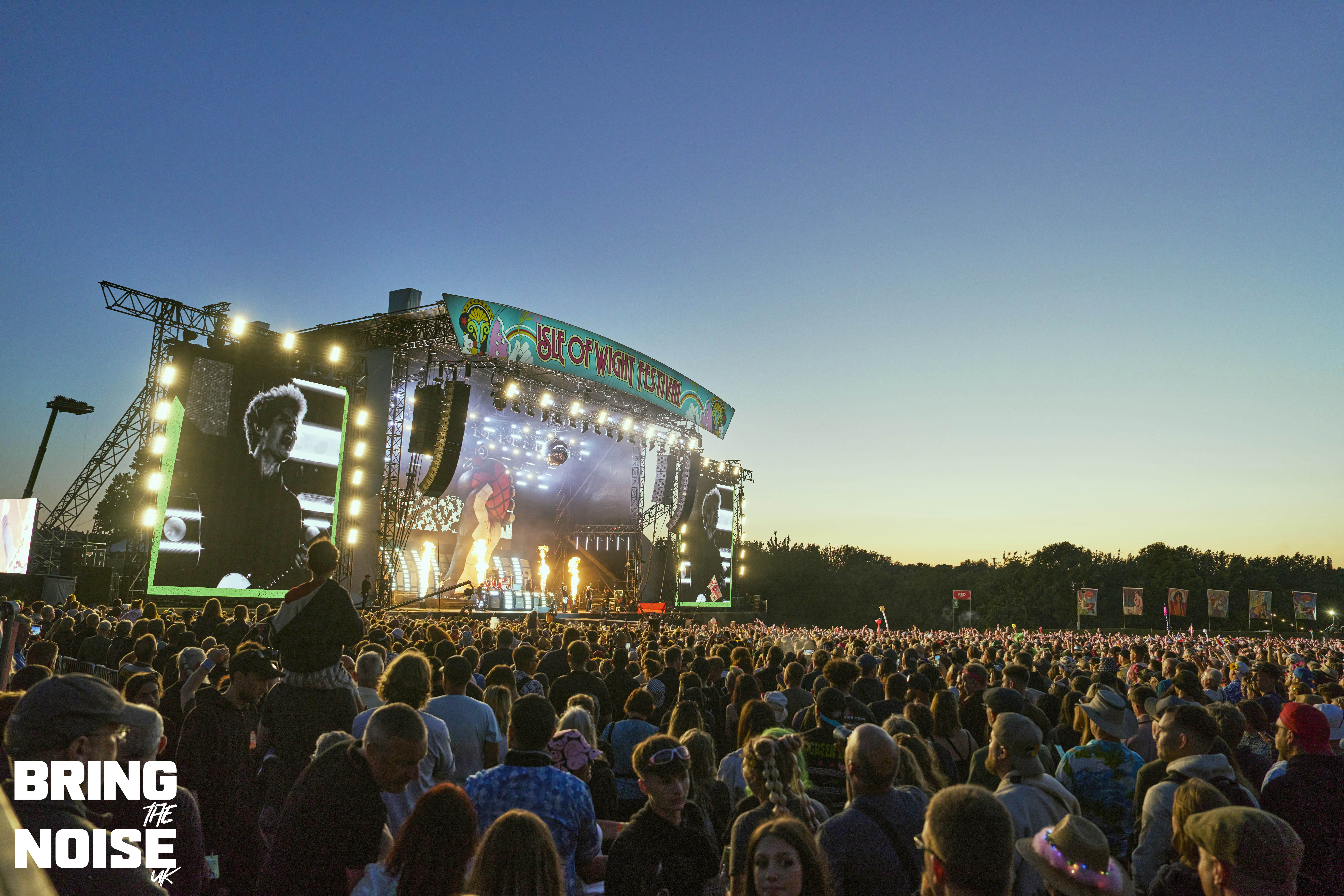MUSIC INTERVIEW: McFly – “the minute the four of us are creatively fulfilled and on the same page, it’s the most fun to be in McFly”
Photo Credit: Haris Nukem
Just before the release of their latest studio album, Power to Play, we had the pleasure of catching up with Harry Judd and Dougie Poynter from McFly to take a deeper delve into this new chapter of the band’s discovery. The record, which is out today, is a fantastic new exploration of them as musicians and artists; allowing them to get to the core of what they believe McFly to be. We spoke to them about their new material and how it feels to be making music they’re deeply proud of.
Guys, great to speak to you again and congratulations on the album. We think it demonstrates your musicianship, it really explicitly demonstrates how good you are in your practices; as guitarists and drummers, writers. The last time we spoke was just before the release of the first single, and now we’re here with this interview coming out today on the release of your record. We’ll dive straight in and talk about it. It’s [Power to Play] got a really good sense of pacing and essence of theatricality to it. You previously mentioned you wanted to explore almost a live version of McFly and you’ve condensed that really well into the album, you mentioned last time that you’ve got your own studio so it allowed you to be more organic in terms of your ability and in terms of being able to create and play around with this material. So with all that in mind, we’d love to know how long it took you to put it together from that first day of writing, to getting to that point of being mixed and mastered?
Dougie: Well, first of all thank you very much, for your kind words! But to answer your question I think it took about two years, because we had a bunch of shows and tours to play. We toured South America and had an arena tour that was all hangover from stuff from Covid.
Harry: And then all the summer festivals!
D: Yeah all the summer festivals and things.
H: So I think it would have taken a year but it took two years.
D: I think that helped because we were just in a live mentality the whole time. It didn’t calm down and get to studio head mode, where you’re not thinking about live anymore and it can just go off down a road where you actually come to play it as a full band again…it can be a bit of a struggle. We’ve got a few songs on the last album that we just didn’t know how to play them live, and we basically has to break them down and start again. This one, we wanted everything to sound like we do live, really.
H: And that’s the thing, we’re now rehearsing them ready for an album launch show and it pretty much – its not straight forward, when you’re recording you have the luxury of making sure you’re really happy with everything and suddenly you’re playing live. You’ve got to make sure that every part you do of the song is as good as it can be night after night but, you’re not having to figure out how its gonna sound live, it just sounds like it does on the record.
D: Just like drum-wise, it sounds like it does on the record. It’s just a drum kit it’s not samples and stuff.
H: I think that’s been our biggest mistake in the past. I often find references can be really helpful for a band, but I sometimes find them quite stressful as I think you know, it alters the way you approach playing a song or producing a song. Whereas, you touched on the theatricality of this album, but it’s subtle. We’re at our best when the melodies are written and we go in and play on it, and our instinct is to try and make it sound big. I think the moment you try and reduce that, or try and sound like a certain band or a certain genre, I think that’s where we get ourselves in a muddle. So, this to me is what we’re good at doing. So yeah, I’ve really loved the process.
That’s really interesting because the next thing we were going to ask was, because when we were listening through it, we listened through of course quite a few times and there were certain tracks that stood out, which we’ll get into…There is like an American rock kind of sound to it. Were there any particular albums or records you came into going, I want this to sound like a KISS album, I want it to sound like a Journey record? But we suppose from what you just said you wanted to come in, knowing what you wanted at the back of your head, but you didn’t have anything in particular we’re guessing?
D: There was, in the finer details, there were things from, you got it right, we had like loads of old 80’s rock bands. Sonically with a guitar sound, or a synth sound, or drums, or how they recorded vocals back then was directly taken from KISS, Van Halen, Def Leppard, ur, Poison. And then there was some 70’s stuff in there, our first single, Where Did All the Guitars Go?, that’s all 70’s like AC/DC, sounds and stuff that we’ve tried to replicate.
H: I think it was this big kind of conversation we had. In the 80’s these rock bands they were doing pop songs, but with big sounding drums and guitars and it was just unashamed pop music – but it was big! Big guitars and solos. And that’s kinda what we’re about, it’s what we want to be about so naturally we were listening to a lot of that stuff. A lot of the music I grew up on was 60’s/70’s stuff, but that was more like organic rock, where as you know you jump into the 80’s and it’s suddenly got new colour.
D: Technology blew up.
H: Exactly. And as you said, American rock, when we all grew up we all wanted to be in bands when we were teenagers. We were all listening to bands that we all liked melodies, where they all had big guitars and drums and that’s just what we like! With our album before we just don’t do that. They’re still good songs, I like them and I’m proud of it, and they can still work really well live but…
D: There’s no double guitar solos…
H: Ha! Yeah with this one, I’m literally like, this is the band I’m most proud to be in for this album. For sure.
When we listened to it, we thought that the live element is really there. You can really hear it. We’ve been watching Daisy Jones and The Six, and we saw a lot of the criticism of that was like “oh well it doesn’t sound like its 70’s music,” but then its modern recording processes, its not going to sound exactly like that. What you’ve achieved is really good, there’s stuff in there that does sound vintage almost.
D: Thank you! And I was obsessed – Have you finished Daisy Jones and The Six yet?!
Yes! Its so good isn’t it?! So good.
D: The music is amazing! I get that there’s some stuff that sonically isn’t as lo-fi but it sounds… It was Marcus Mumford that wrote all the music and it sounds like they’ve done it in Nashville or something, with some incredible musicians…I think it sonically sounds as close as you could get to a Fleetwood Mac Rumours kind of sounding album.
Yeah that song River, when that guitar comes in…You just wanna play it loud on speakers. So glad we’re not the only ones obsessed with it! Right we’ll jump back in as we lead that slightly off topic there, ha! So we talked a lot about the lead single last time, but we want to look deeper into a few of the other tracks, and we want to start off with God of Rock and Roll. This was released as the second single and we think having listened through the album a few times it’s the one that really stands out as the best song on the album. It’s just such an all-around strong song from lyrics to melody to everything. It feels like a classic, it feels anthemic. And again it brings that theatrical element and when listening to the end chorus reprise of the song, we were trying to rattle our heads for what it reminded us of only to realise that it’s like the reprise of The Greatest Showman. We thought, this is such an end of show song, it has this call and response element to it so we wanted to know, where did this one come in the recording process? To us it feels like the last song you wrote, which it might not be! Talk us through the song.
D: You may as well be interviewing yourself as you’d nail everything [laughing]. You’ve nailed it, yeah it was the last song! We had about 13 songs and the album was done but, I enjoyed writing so much that I just wanted to carry on and I stumbled upon the outro first at, this kind of anthemic…of this kind of summing up, and it had that like…going to a gig is like going to church, everyone is there to see the same band and there’s hardly ever any fights. If there are its like moshing and its euphoric, it’s like going to church, so I landed on that bit, and yeah if there was a god of rock and roll I’m certain we would all worship him and as I played that ending to Tom, he sent me a voice-note of where he thought that song should go and we really quickly in a panic recorded it! It was the quickest one on the album for sure, as we didn’t have the luxury like we did with the rest of the album of trying things out, we did in like a week or so right?
H: Yeah and also there was a lot of talk about Van Halen and like 80’s pop/rock and this was a really important flavour that we’d had a conversation that we felt was missing that. Really there’s only like Route 55 and I think there’s another one of that flavour. We’d used that as a big inspiration in like the artwork and it’s just doesn’t feel like it quite adds up, so it’s got to feel rock and roll suddenly and everything sort of clicked into place!
D: It’s the most over the top one.
H: Yeah exactly, and there was debates about that being a single because of its theatricality, there was concern of people not understanding the…not the irony in it? But it’s like we said about McFly, we take the music seriously, we don’t take ourselves seriously, so it’s enabling to enjoy songs but without taking things too seriously. There are serious songs on the album, but in the simplest form it’s about having fun and feeling good when listening to music and the thing about McFly is it has that point of difference. Y’know, there’s other songs that are arguably better songs or stronger songs, but the argument was that not many other bands do release a song like God of Rock and Roll. It’s got that tongue-in-cheek feel.
At the minute, second singles seem to be the ones that the artist really want to put out. We really like Nothing But Thieves and the first track is Death Club City and it’s set the tempo for the album, but the second single kind of sounds more like it wouldn’t be the radio hit, but it’s the one where they’re saying “this is the one we really want you to like”, it’s got that vibe. But yeah, we kept going back through the album and found ourselves replaying GOR&R as it’s a banger!
D: Thank you so much.
Now correct us if we’re wrong here, track three, again when we were researching to see who you guys had worked with, we have James Bay involved on Forever’s Not Enough, are we right in seeing that as a writing credit? Because that’s come as a nice surprise!
Both: Yeah!!
H: So we’re hopeless at networking as a band, we’ve never. And a lot of great artists are out there, meeting other great artists and just writing and collaborating, we’ve just never done that. And the reason we worked with James Bay is Danny knew him through playing football with him, Tom met him through working through a TV show, where Gary Barlow put a band together and he put like James Bay and Tom and other amazing singers and musicians, so Tom met him there and he’s just a really nice dude and he plays guitar. So it was like a genuine thing, asked him if he wanted to come down to the studio and write and he was like yeah, sounds fun! So he drove down to the studio and we wrote the song. That’s why it quite rarely happens for us, because it was just a genuine kind of, well he’s a nice dude and said it sounded fun. There’s a riff at the beginning of the song that I think Dougie had written, right?
D: Oh yeah the riff started it.
H: It was the kind of riff we played in the studio and we were jamming as a band, it was so satisfying to play.
D: But that’s all we had.
H: That’s all we had for ages, was the riff over and over again. Then when James came we went, “we’ve got this riff what do you think?” And then the rest of the song was written!
It’s cool because when you listen to it, it sounds in his key almost.
Both: Yeah!
D: Weirdly I remember writing that bit. The song used to go elsewhere, it used to go more like a Def Leppard song. Where we were roughly going with it. Then he instantly started going – [sings in his key] – and we were like, sweet! Sounds like ABBA.
H: I remember standing next to you and going, god it sounds so good and hearing his voice. He’s got an amazing voice and was just sat on the sofa singing and it was like oh man, that’s so good. It’s just so good that song and the melody is so lush, that were debating if it felt right coming in with these guitars and that big drum and it does, it works. It’s one of my favourite songs we’ve ever done. But we’ve also done an acoustic version with just Danny and that is just arguably just as good, it’s really laid back, it’s a beautiful version. We kind of ended up doing both versions.
D: He can shred as well.
H: Yeah he’s one of those exceptionally gifted, effortlessly gifted singers.
Make it out Alive is probably the closest to a ballad we get from Power to Play. It comes in with a Latin guitar sound that runs centrally through the song. It’s quite a negative situation. It’s got quite a angsty vibe, let’s talk about it?
H: It is angsty, for sure.
D: I started writing that on Boxing Day I think! So it was cold and miserable, and I’d just seen that movie Don’t Look Up, so I kind of had that end of the world feeling of we’re all doomed and just found it really odd. I just had some deep thinking of wow, some people profit on the end of the world and then I thought well, if I was in the same position where someone offered me a trillion pounds but y’know, on the side man it’s taking oil out the ocean or the ground, would I do it? I honestly don’t know what I would do, if it was that much money! And I just started going, well, we’re all fucked can we make it out alive?
H: I mean that’s why I love the song, the sentiment and the music matches the lyrics and its supposed to make you feel down about the situation, but also I guess to tap into the emotion of it all it’s quite overwhelming when you really think about it. It’s extreme, the build to the final chorus is all kind of hectic and extreme it all kind of feels really…you can visualise what the song and lyrics are actually about. And I think it’s been really nice having Dougie write a lot more, because he’s had time to have these songs. And I think you’ve never really had the time or confidence to write songs.
D: It’s having a studio. You know on Boxing Day you can come in and write whatever you’re feeling in that moment.
H: It’s been very interesting because it’s like Tom and Danny, they write songs so differently, but it adds this new flavour that we’ve had in the past a bit, but often we’ve had one song on an album. Whereas this has added a nice colour throughout the album.
It’s a really great track, we like the guitar and then when it really comes into the bridge. Again, a really great song, congrats on that one guys. So just to kind of close it up, we know we touched on this last time but going forward, do you feel like its allowed you to shake off those fears in regards to making music that you really want to make, as opposed to making that radio hit? And now that the album’s out, does it give you a sigh of relief knowing people are already stoked for the tour and you can finally play these songs out live for people?
D: Honestly, I was kind of thinking about this the other day. One of the best things about it is, we’re in rehearsals at the moment and we’re doing really long days but it doesn’t feel negative at all, everybody is in a good, positive place. So no matter how the album is received, we really, really dig it.
H: It’s much more important, for us a band, as four people, in terms of our enjoyment for this I know it sounds obvious, but it’s really important that we love what we do. And we’ve always loved what we do, but there’s always four different people, with options and influences and stuff and I kept saying, urgh I giving myself credit, but I kept saying to Danny and Dougie when Tom wasn’t here, we need to get back into that unity we had on Radioactive back in 2008. We need to find that place again and I was insisting we get Tom in and they sit down with their acoustics, not making demos, just go right back to the start, write the songs like that. We go in, we jam it, we play our instruments and suddenly you’re just being a band again, and I think the only time we would only be getting that is on tour. So when you get it in the studio again…that for me was always the key, the minute the four of us are creatively fulfilled and on the same page, it’s the most fun to be in McFly. Then it doesn’t matter about success. You hope obviously for it to kick off and be successful, but we’re so lucky to have a dedicated fanbase, so instead of trying to chase a hit, isn’t it more important that we keep feeding our fanbase? We know actually they’ve been quite patient. I know a lot of them love our songs on Young Dumb Thrills, but if we can tap back into that real music lover, that McFly fan that loves us for the music, I feel like that album feeds that.
A true fan who is an actual fan of artist or band wants growth. So that all makes such sense. Again, guys, super nice to talk to you again! Thanks for putting up with us for a second time!
Both: No, no worries it was great!
Good luck with the release!
McFly‘s new album Power To Play is out now via BMG, available to stream or purchase HERE.





